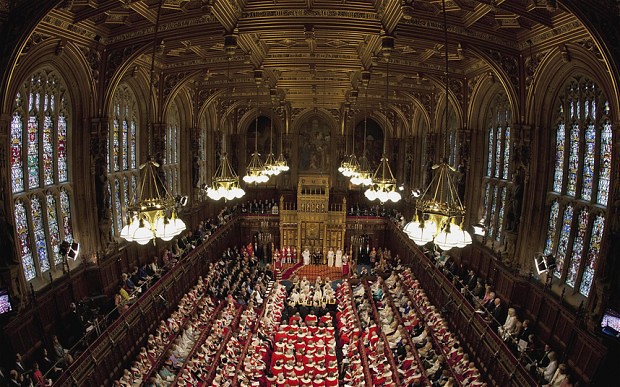Reducing the size of the House of Lords misses the point - we need bold reform of Parliament’s upper chamber.
An inquiry set up by the Lord’s Speaker committee invited the public to submit thoughts on how to cut the size of the House of Lords. We’re very keen on reform of the House of Lords, considering it to be woefully undemocratic, but reducing it’s size is a pittifully poor substitute for proper form.
Nevertheless, we put together a response to the inquiry, which we wanted to share. For more on how we would reform the House of Lords, see our manifesto.
-
We are disappointed that with such strong support for fundamental reform to the House of Lords this inquiry is not considering the clear public appetite. Despite this, we will limit our submission to those areas outlined in the consultation document.
-
As shown by three EU Referendum debate, the public appear unhappy at a system of democracy that includes unelected members in a position of power. At present the UK Parliament is only 45% elected. This is an internals situation for a supposedly representative democracy.
-
Our first recommendation is that the House of Lords should never have more Peers than the House of Commons has MPs. This would ensure that at least 50% of the UK Parliament is elected. This also satisfies the need to keep the number of Lords at the same level.
-
In order to reduce the size of the upper chamber we suggest that this be done by focusing on three categories;
-
When more people in England and identify as non-religious than religious[1], allowing Church of England bishops an unrepresentative amount of power is unjustifiable. The Lords Spiritual should be the first to be abolished.
-
Next should be the 92 hereditary peers. No Parliament should have members who are there by virtue of the accident of their birth. This would also rid the chamber of the farcical by-elections.
-
The last group of peers to be removed should be those who have attended or voted least. In the 2010-2015 parliament, £360,000 was claimed by Peers in years they failed to vote once, while in the 2014 Parliamentary session over £100,000 was claimed by Peers who did not vote at all. Any reform must end this gravy train.
-
Maintaining a balance between parties and cross-bench press has been one of the causes of the bloated nature of the upper chamber, and undermines it’s independence from the Commons. Our next recommendation is that the party link be broken and that peers are required to relinquish party membership. This would additionally serve to strengthen the idea that Lords should be appointed for their expertise, and help tackle the perception of cronyism.
-
New peers should be appointed through a democratic vote, based on proposals from the public, to add some sense of public influence over the upper chamber but without threatening the supremacy of the Commons.
-
Any member of the public should be able to recommend someone for a peerage. The House of Lords Appointments Commission should maintain a public list of recommendations, similar to a petitions system, where the public can show support.
-
When a page becomes available, the Appointments Commission should then draw up a shortlist of candidates taking into account factors such as public support, applicable skills and existing political connections. Existing Peers would vote, using STV, for candidates and the winner would be offered the peerage.
-
There should be no automatic appointments to the House of Lords.
References
- https://www.theguardian.com/world/2016/may/23/no-religion-outnumber-christians-england-wales-study
